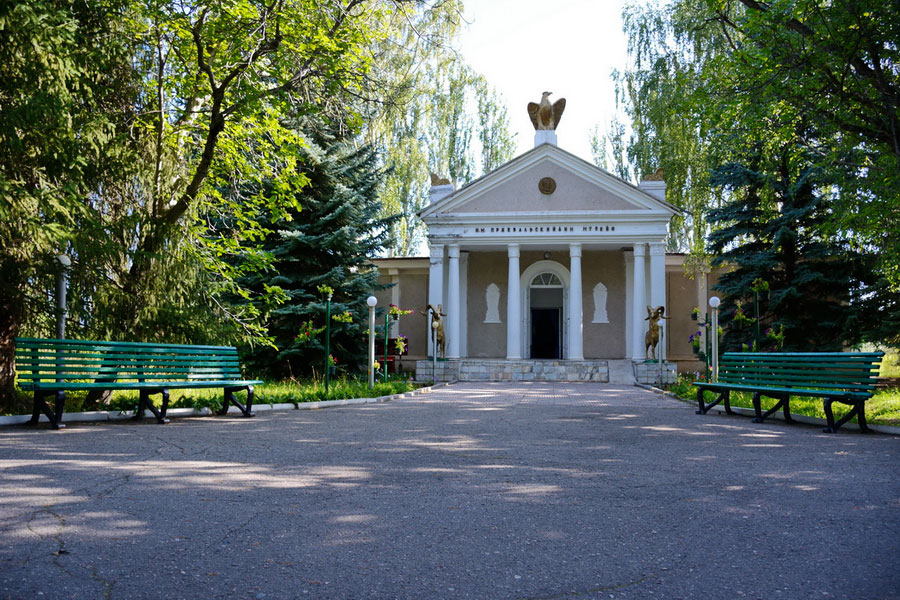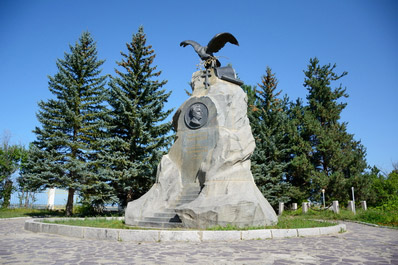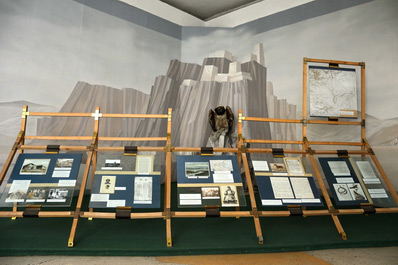Przhevalsky Museum, Karakol

The Przhevalsky Museum is part of a memorial complex dedicated to Russian explorer and geographer Nikolay Mikhailovich Przhevalsky. This eminent scientist-naturalist devoted much of his life to studying the landscapes and cultures of Central Asia. He died of typhus in Karakol during his fifth expedition to the region. Moved by the beauty of Lake Issyk-Kul, Przhevalsky requested to be buried on its shore - a wish that led to the creation of this memorial complex. The ensemble includes the traveler's grave, the museum named in his honor, an Orthodox chapel, and a striking monument constructed from massive granite blocks of Tien Shan stone.
Located 12 kilometers from Karakol, in the village of Pristan-Przhevalsk, the museum occupies a monumental Soviet neoclassical building. Its pediment is adorned with a large eagle statue and a bas-relief of Przhevalsky’s portrait, flanked by sculpted argali - mountain sheep native to the Central Asian highlands. The museum's collection spans over 2,000 items, displayed across ten spacious halls.
Exposition
Inside, visitors will find a rich array of documents, photographs, sketches, and original notes from Przhevalsky’s travel diaries, alongside printed works containing valuable insights from his expeditions. His personal effects are also on display. At the entrance, a large globe and a ceramic map of his journeys welcome guests, bordered with finely arranged tiles. The exhibition includes numerous taxidermied animals and birds, notably Przhevalsky horse - a rare species of wild horse native to the Central Asian steppes.
Among the museum's most treasured artifacts is Przhevalsky’s personal rifle, which accompanied him on all his journeys. This elegant weapon is engraved with intricate images of a fox, boar, deer, and dog, along with the owner's initials - a remarkable example of handcrafted weaponry and a prized historical item.
A visit to the museum includes an informative guided tour highlighting the explorer's life and notable moments from his expeditions. Guests of the memorial complex gain insight into Przhevalsky’s enduring contributions to science and can explore lesser-known aspects of the region’s history.


